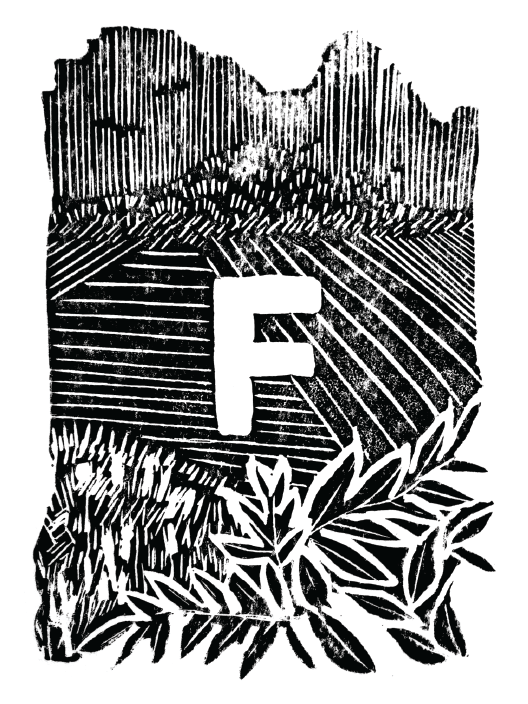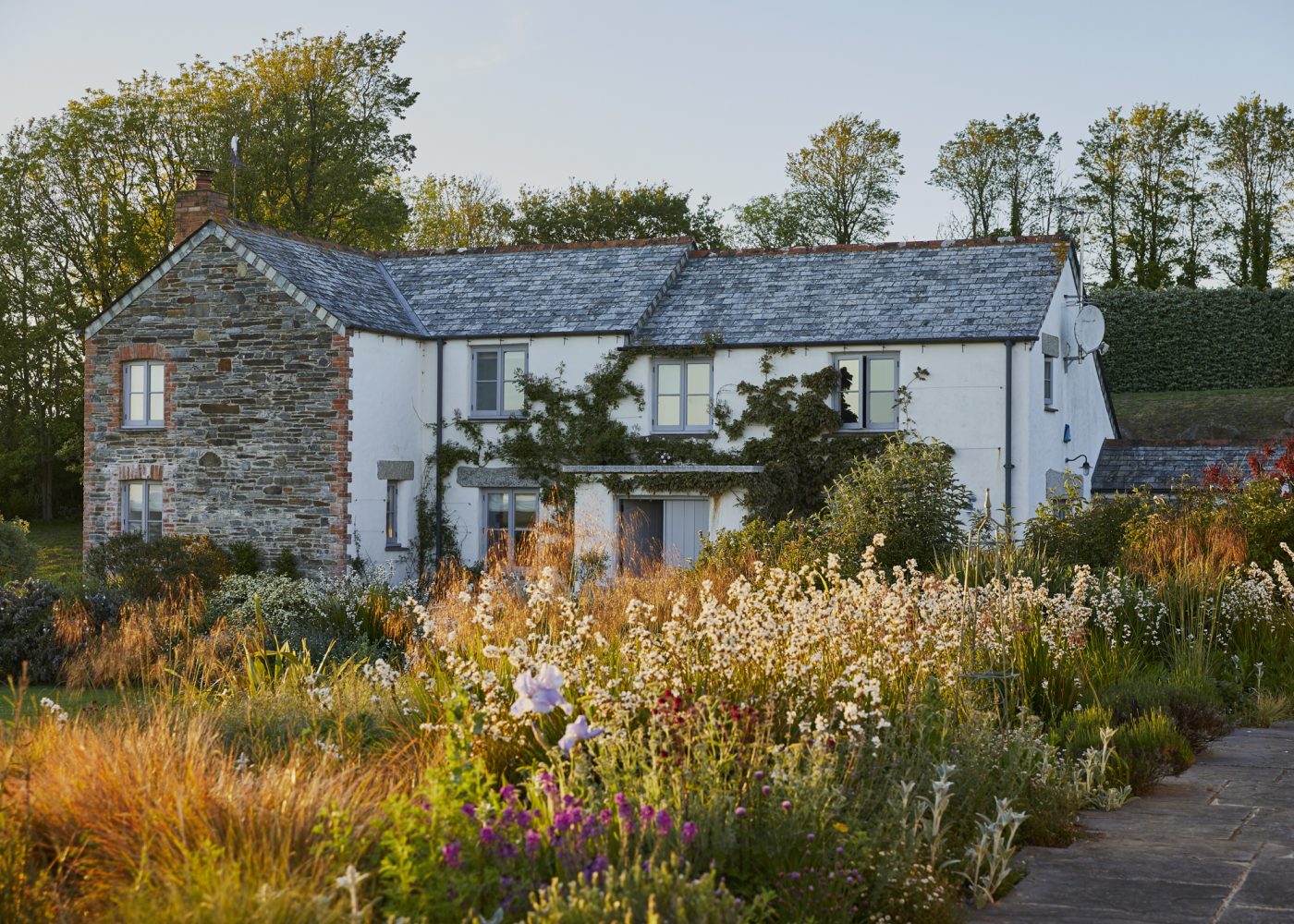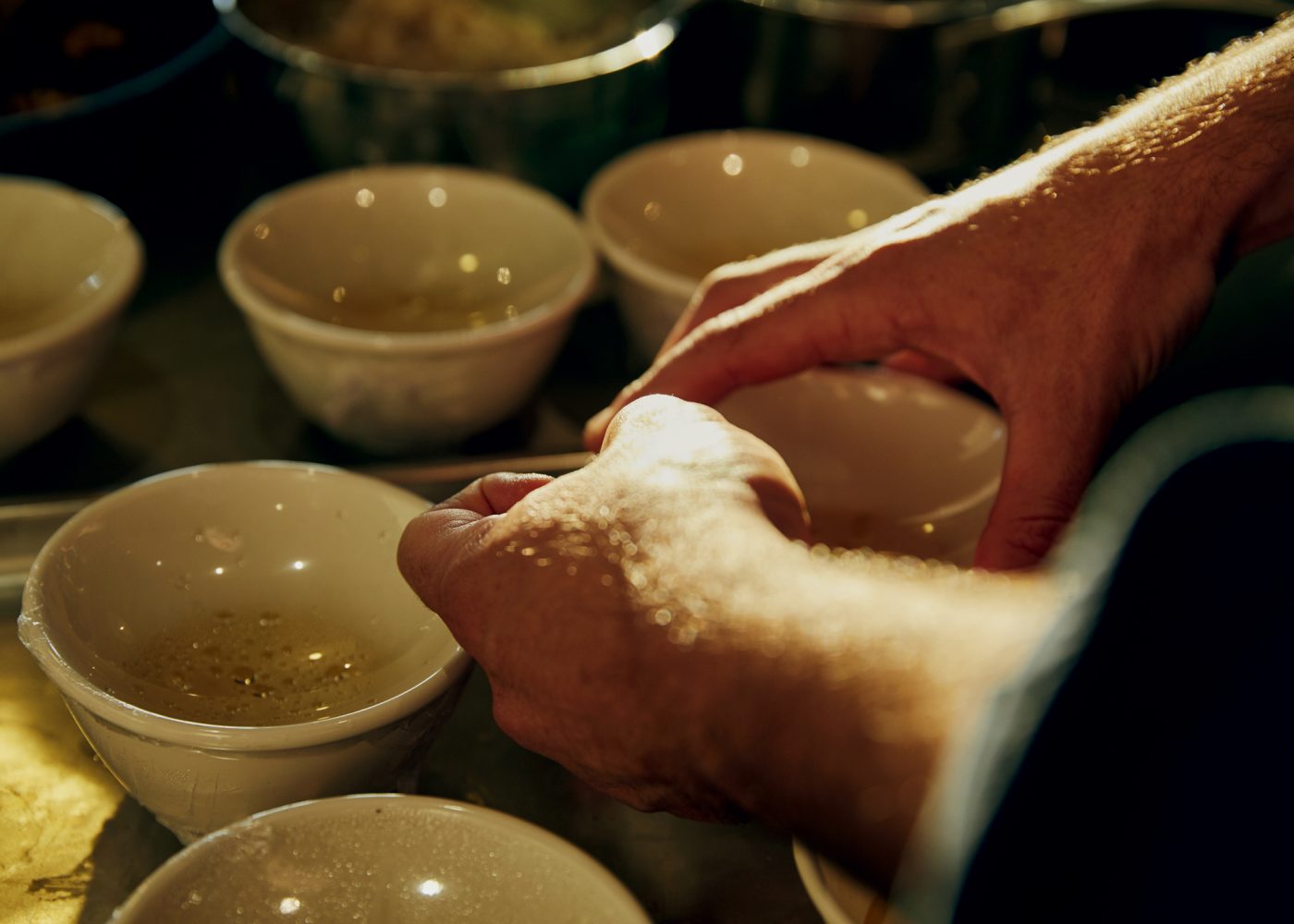Whetted Appetites
Louise and Tim set off from London to arrive in Cornwall in early summer 2017 — but have yet to find what they came for: a place by the sea to call their own. A restaurant with rooms and a kitchen garden. For them, the last two years have been an ongoing endeavour to take the bitter with the sweet, to home in, to keep on. Here Louise talks about making adjustments, loving/lamenting the F&B industry (love endures), and learning to be selective. When it comes to pursuing your dreams, it’s a good idea to come hungry.
Words below by Louise.
Tim and I have worked in hospitality all our lives.
My parents are cooks and I used to work with them when I was younger, helping out at events, doing commis jobs. It was fun. They would always try to talk me out of the hospitality industry actually, saying ‘it’s hard work,’ ‘you will work when everyone else is off,’ lots of things to make me choose another profession — but it always drew me back.
I started my career in a classic Danish bakery; Tim as a kitchen porter. He only did a week in that role before turning to the stoves. In all the time we have worked in hospitality, I have worked front of house and Tim in the kitchen [formerly at The Clove Club, P. Franco, The Ledbury, and others]. I love hosting and he loves cooking, so we wouldn’t do anything else. I think it’s the rush you get after a good night, when everything falls into place and no serious mistakes have been made. A night when all guests leave happy and full. And, the possibility of inviting guests to stay overnight makes it all that more enjoyable because you get to know them a bit better.*
*Dinner guests were invited to stay the night after Louise and Tim’s recent supper clubs at Treverra Farm, photographed here.
I am originally from Denmark. I spent twelve years in Copenhagen before moving to London. Tim had ten years in London, before we decided to move to a tiny village called Chacewater in Cornwall in 2017.
A long time ago, before I met Tim, I would have said living in Copenhagen is the best. It's an easy life. It's a beautiful city, lots of greenery, great design and buildings; but, I grew up a child of hospitality and because my interest in gardening started early (we had a really lovely garden and veg patch at home where I grew up), after twelve years in the city, I was ready to get some dirt under my fingernails — which is why we want a restaurant with rooms in the countryside, and not simply a restaurant in a city.
Tim will also say being able to surf and be close to the ocean are important, and I will have to agree. When we met, we realised we had pretty similar ideas of what we wanted in life — and garden and ocean are high on our list.
‘We are not after just any job in hospitality; we are here to make a difference. I know that sounds grand for working in hospitality but we really want to create something special.’
Now we are temporarily renting a flat in Bude. There is a good mix of people here; some have moved from London like us, others are Cornish people who have had their time in the big smoke but have returned to open their own businesses.
We are working towards the dream of our own place where we can express ourselves the way we want to, to create a good life. We are not after just any job in hospitality; we are here to make a difference. I know that sounds grand for working in hospitality but we really want to create something special. We realised we had to be in Cornwall full-time to be able to create a network and find the right property. It’s difficult to assess properties online when you are at least five hours away, trying to figure out if they are worth a look. It’s much easier now. We get to know different areas, to figure out where we want to be for the next 20+ years of our lives. We are probably quite specific, which is why after a couple of years of searching we still haven’t found the property for our project. We would like to be close to the coast, preferably with no immediate neighbours. We also thought that there might be more run-down buildings in Cornwall, to do up an old house so we can put our own stamp on it, but it’s getting harder to find these places.
During our first year in Cornwall, we had the summer off so we did events in London and helped our friends at Woodfired Canteen down in St. Agnes. Then in September we were asked by our friend Tom Adams if we were up for running Coombeshead Farm along with him and a small team. We had previously turned down the opportunity but decided that we could learn a lot about running a small farm-hotel; but after a year, we realised that we are not the type of people who can do things halfway, which meant running Coombeshead while looking for our own place was no longer an option. We were offered a great opportunity in Scotland after that, but ultimately we wanted to do our own thing. Now we are doing supper clubs and events to raise our profile, and trying to make sure that we are doing it our way as much as possible.
‘We were paying three times as much to live in London and, although we were lucky to be where we were, we wouldn’t trade back at any cost. We spend more time outdoors now and live much simpler lives. We make our own cordials, spirits, household products, and we enjoy looking after the environment.’
I think your occupation will inevitably evolve after you leave a big city like London. When you move to a town with a population of 10,000 people your views and ways will change; you get a lot more chatty with strangers, you open your mind a bit more. Not everyone is career-driven, many people have moved down to change their busy lives to something less stressful. I have friends down here who have started up businesses very different to what they used to do in London — tech people now working with wood or marketing people starting up a pottery studio. People are choosing to go back to crafts and finding a better work/life balance. I love that!
It seems more people are becoming conscious of and working towards of ‘a better life’ — more environmentally aware and generally wanting to do better, whether that’s buying local produce and reducing your carbon footprint, or being smart about how your staff works. The restaurant industry has suffered a bad reputation, and for a good reason: people work really long hours, they don’t get paid very well, we often have to deal with bad customers thinking they are always right! I hope we are moving away from that attitude. I hope the industry can find a better work/life balance, where you can work in hospitality without ruining yourself before turning 40. There is also a kind of ‘throwaway’ policy in hospitality in larger cities; restaurants are generally understaffed because so many new places are opening all the time, it’s challenging to find and keep the right people — maybe it’s because working in restaurants is not treated as ‘a way of life’ for everyone. In Denmark, you can take a four-year degree as a chef or waiter, so it is what you do. In the UK, many people have worked in hospitality at some point in their lives, but it’s not a career choice; although some may be doing really well, they are just doing it while they are studying something else at university. Chefs also love to shop around to build a good resume, so people will stay for three to six months in one establishment then move on, thinking that is the way to do it, when it’s really not. It’s a tough industry, and I think it’s not often appreciated enough for how much work goes into a guest having a good evening.
The best thing about our move is that we are so much closer to producers and growers, of all kinds. Tim was using a lot of Cornish produce while working in London so it has been really nice to be able to visit the producers and keep up a good relationship. A few people Tim worked with in London are Kernowsashimi, Good Earth Growers and Warrens Butchers — these are people we still work with today. We have also met many small farmers just by word of mouth: Down Farm, Fresh from the Sea, Trevozah, Porthilly Shellfish. The fishermen are on day boats going out from the north and south coasts, and the farms are on average about 45 minutes away, but so worth the trip. When you go to pick up your produce fresh from your supplier, and you help pull out the rhubarb from the ground, it just makes life a little bit easier and the produce is amazing!
Another difference since moving out here has, of course, been cost of living. Even though we don’t work full time, we are still able to get by and live in a nice flat that is a five-minutes walk from the ocean. We were paying three times as much to live in London and, although we were lucky to be where we were, flat and area, we wouldn’t trade back at any cost. We spend more time outdoors now and live much simpler lives. We make our own cordials, spirits, household products, and we enjoy looking after the environment.
My mum loves making big breakfasts, especially on weekends. It’s the full spread. I have always started the day with a large breakfast, and now I have made Tim into a breakfast person too. So our days begin with breakfast. Then, we have started to practice morning yoga, to get the joints going, before we sit down with our project or go view a property. If we have events on a weekend, we will prepare through the week with orders, writing menus and name cards, prepping food, then eventually cooking and hosting a supper club.
I am most productive in the morning/midday. After supper time (around 6pm) I am not very good at putting my brain to work — at least not in the way that we work these days, which is mostly in front of a laptop. Tim is probably leaning towards the opposite of me and will happily sit in front of the laptop in the evening.
One of my favourite events to date was one we did at Giant Steps in London last year, for Tutto Wines' summer party. It was so much fun! We were incredibly busy, Tim and a crew of great friends/chefs were on the bbq and I was taking orders. It started at 12pm and we had a queue of people waiting to be served until 6pm when we were completely sold out! I also had a ten-month stint at Aesop before we left London, which I really enjoyed. I have, for a long time, done my own (very basic) skincare, so it was a double joy to work with them — I learned about all the ingredients and got to know a lot of amazing people. When we get our own place, I would love to be able to stock Aesop in the rooms.
I think there are unique opportunities for rural-based creatives, now more than ever, but I also think you have to create your own happiness.
We moved down with an overall plan for the future but no set plan for the present, which is maybe not what I would recommend, but it forces you to act and think. We are lucky to have each other; if you move down here, single, to a farm in the middle of nowhere, it might be a bit lonely. I also like that the more you engage with the local community the more you learn. The amount of people you get to know by word of mouth is amazing! We now have connections to fruit here, raw milk there, and it’s really rewarding getting to know down-to-earth, honest farmers and craftspeople. I love it.
But, to be honest, the fact that we need investment to make it all a reality can be really tough. And, Tim and I are not very pushy people. We don’t really like promoting ourselves, but we are learning to get better at this.
We are aware that we will work just as hard (or harder) when we get our own place — but it will be ours, and it will be based in the countryside with clean air and fresh produce right outside the door.
Greatest extravagance: To live by the ocean. It is just so indescribably calming and nice! To unwind, Tim will go for a surf as often as he can and I go for a walk on the cliffs while listening to podcasts.
Favourite flavour combinations: I am normally a salty/savoury person and love Japanese spices, but in early summer when the peas and strawberries are in season I can eat those for breakfast, lunch, and dinner.
I hope our dream of a restaurant with rooms becomes a reality in my lifetime (soon).
Published on: 27 June 2019. Edited by Fields in Fields. All images courtesy of Louise Rødkjær and Tim Spedding; photography by Emli Bendixen. ▪ To stay informed on upcoming events and supper clubs, contact hello@louisiana-inn.com and visit: louisiana-inn.com.









